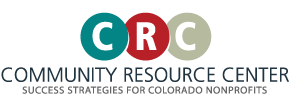2023 Southwest Rural Philanthropy Days Decolonizing Philanthropy Resources
On Tribal Chartered – IRS Section 7871 – Nonprofit Organizations
Charitable and Sovereign: Understanding Tribal 7871 Organizations | First Nations Development Institute
Internal Revenue Code Section 7871 | First Nations Development Institute
7871 Awareness: A Two-Way Stream | First Nations Development Institute
On Private Philanthropic Giving to Native Led Institutions
Colorado Foundations and their Support of Native American Community-based Nonprofits
- A 2022 report from First Nations Development Institute
- Research has found that Native American community-based organizations in Colorado are invisible within the giving portfolios of foundations in the state. Only one-tenth of one percent (.1%) of Colorado philanthropy is awarded to Native American community-based organizations in Colorado. Moreover, findings from qualitative interviews document that Native nonprofit leaders report negative experiences in their interactions with philanthropic institutions in the state.
- This reports aims to provide an understanding of the relationship between Colorado foundations and Native American community-based and Native American-serving organizations by analyzing foundation giving by the top 20 philanthropic foundations in Colorado to Native American community-based organizations in the state. It concludes with recommendations for supporting Native-led change across Colorado, along with resources to learn more.
Growing Inequity: Large Foundation Giving to Native American Organizations and Causes – 2006-2014
- In this report, First Nations Development Institute examines the state of large foundation giving to Native American organizations and causes from 2006 to 2014. This study finds, among other things, that from 2006 to 2014, total grant dollars awarded to Native American organizations and causes declined by 29%, a $35 million drop in funding.
- An executive summary of the report can be found here.
- Why does philanthropy continue to only minimally support Native American organizations and causes? That’s the crux of the issue that has plagued Native American nonprofits and causes for some time. Despite the high need in Native communities and the proven ability of Native-led organizations to help address those needs, mainstream philanthropy has shied away from adequately funding these initiatives. Recent research has documented declining levels of giving by large foundations, as well as minuscule levels of giving by community foundations, to Native American organizations and causes. This report was prepared by First Nations’ partner, Frontline Solutions, to shed light on this essential question.
Searching for Inclusion in Philanthropy | First Nations Development Institute
- A Guide to Equitable Practices in Foundation Hiring: This study examines hiring practices of U.S. foundations as they relate to the hiring of Native Americans and offers tips to improve the hiring process so that we can see more talented and qualified Native people working in philanthropy.
Community Foundation Giving to Native American Causes | First Nations Development Institute
- This report examines giving by community foundations to Native American organizations and causes. In all, the report highlights that only 15/100ths of one percent of community foundation funding goes to Native American organizations and causes annually.
Native Health Equity Fund at First Nations Development Institute
- First Nations Development Institute received a two-year $1.5 million grant from the Colorado Health Foundation to develop the Native American Fund for Health Equity aimed at increasing philanthropic investment to Native-led community organizations and tribes in Colorado.
On Decolonizing Philanthropy
- The Trust-Based Philanthropy Project is a five-year, peer-to-peer funder initiative to address the inherent power imbalances between foundations and nonprofits. At its core, trust-based philanthropy is rooted in a set of values that help advance equity, shift power, and build mutually accountable relationships. No matter where a foundation starts its trust-based journey, to fully embody this approach grantmakers rely on trust-based values to guide four key dimensions of their organization’s work: culture, structures, leadership, and practices.
- “As grantmakers, we have a responsibility to confront the ways our sector has contributed to systemic inequities, both in the ways wealth is accumulated and in the ways its dissemination is controlled. This history is entrenched in racism, patriarchy, and other forms of oppression, which are at the root of every social issue nonprofits seek to address. As funders, we must recognize how these norms have shaped, informed, and influenced our entire sector—including who is deemed trustworthy, and who is not.”
- Founded by Edgar Villanueva, the Decolonizing Wealth Project is a team of experienced philanthropy, public, private and creative industry professionals dedicated to executing DWP’s mission and vision.
- Liberated Capital is a donor community and funding vehicle aimed at moving untethered resources to Black, Indigenous and other people-of-color communities for liberation and racial healing. Informed by the Seven Steps of Healing, we grieve, listen, and give space for communities to heal from generation trauma.
- Decolonizing Wealth, Second Edition: Indigenous Wisdom to Heal Divides and Restore Balance – 2021, Edgar Villanueva
- Money as Medicine: A guided journal for decolonizing your relationship with money
Practical DEI: Changing the Rules of the Nonprofit Sector | Matt Karkut
- A practical list of equitable and inequitable philanthropic and nonprofit practices
On Community and Other Perspectives on Philanthropy to Indian Country
Philanthropy in Indian Country | First Nations Development Institute
- First Nations Development Institute teamed with Nonprofit Quarterly to present a series of articles to highlight voices of respected Native American nonprofit leaders to sound off on a variety of topics related to philanthropy and its interactions with the Native American nonprofit sector. This is a rare opportunity for a larger audience to hear and learn from Native people who have been leading the way in fighting for Native communities and advocating for greater philanthropic support for the innovative work taking place in Native communities across the United States.
Funder Perspectives: From a Baseline of Knowing Absolutely Nothing … to Learning So Much
About Supporting Work in Indian Country | Ren Dietel, Senior Partner, Dietel & Partners
Funder Perspectives: Why We Work in Indian Country: An Affinity Group’s Perspective | Virginia Clarke, Executive Director, Sustainable Agriculture and Food Systems Funders

